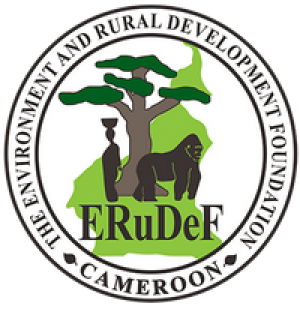[one_third] [/one_third]The Deputy Director of West Africa Programs of Tress for the Future in the United States, Mr. Curtis McCoy, has underscored the need for communities in the Adamawa Region of Cameroon to be trained on modern agroforestry techniques that will improve on the soil fertility of farmers in the Region.
[/one_third]The Deputy Director of West Africa Programs of Tress for the Future in the United States, Mr. Curtis McCoy, has underscored the need for communities in the Adamawa Region of Cameroon to be trained on modern agroforestry techniques that will improve on the soil fertility of farmers in the Region.
Speaking at the end of a 3-day feasibility tour to the Region, August 19, 2016, Mr. Curtis said such a training will increase farm yields as well as improve on the livelihood of the communities in the Northern Region.
Aimed at determining the forest gardening potentials of the Adamawa region, the Deputy Director said the visit gave him the opportunity to see, discuss and have a deeper understanding of the agronomy needs of the Region.
“I spoke with farmers about their various challenges in relation to different seasons and in terms of crops cultivation for home consumption” he disclosed.
During this tour, Mr. Curtis discovered that very few farmers in the region practice sustainable gardening and field crop agriculture.
One of the farms visited during this tour was a mango orchard. Here, the Trees Partner noticed that the fruit tree had spacing problem and pruning too was lacking.
“These farmers put in much time and other resources but lack technical knowledge that can enable them better reap from the fruit of their labour” he lamented.
The situation also gave him an idea of where to deplore resources in a way that will create more impact in the communities.
“Much still have to be done especially in building local capacities and supporting livelihood activities in the Region,” Mr Curtis testified.
He said Trees for the Future and the Environment and Rural Development Foundation (ERuDeF) would continue to work in close collaboration to find new project opportunities and ways of implementing such projects.
Reacting to Mr. Curtis visit, the President/CEO of ERuDeF, Louis Nkembi, said it was very important. This according to him is because it gives the partner a direct feeling of activities, challenges, prospects of projects and working environments.
By Queen Achingale
